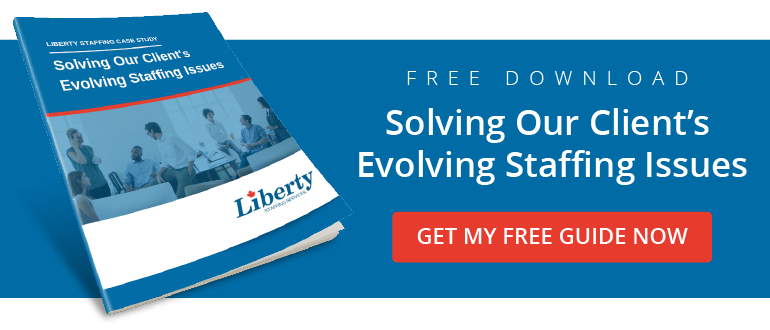 In recent years, artificial intelligence (AI) has emerged as a transformative force across virtually all economic sectors, fundamentally reshaping how businesses operate. From finance to healthcare, the impact of artificial intelligence is undeniable, but one industry in particular is poised for a significant overhaul: AI in manufacturing. Employers and employees alike are curious about the implications for the manufacturing industry, so let’s explore what this tech revolution means for the future of your business.
In recent years, artificial intelligence (AI) has emerged as a transformative force across virtually all economic sectors, fundamentally reshaping how businesses operate. From finance to healthcare, the impact of artificial intelligence is undeniable, but one industry in particular is poised for a significant overhaul: AI in manufacturing. Employers and employees alike are curious about the implications for the manufacturing industry, so let’s explore what this tech revolution means for the future of your business.
Benefits of Integration
MIT Technology Review reported “ambitions for AI development to be stronger in manufacturing than in most other sectors.” With such an interest in integrating artificial intelligence, it would follow that businesses expect to see some improvements that make the transition worthwhile. Let’s explore some of the key advantages that are causing this excitement.
Greater Automation
One of the most significant benefits of AI for manufacturing is the advancement of automation. AI-powered machines are now capable of handling tasks that require extreme precision, speed, and consistency. However, it’s important to emphasize that the future of manufacturing isn't about robots replacing humans; rather, it's about collaborative work. Humans will oversee, strategize, and innovate while robots handle repetitive and physically demanding tasks. This synergy between humans and machines can lead to safer workplaces and increased job satisfaction, as employees can focus on higher-level responsibilities.
Predictive Maintenance
Another major advantage of AI in manufacturing is predictive maintenance. Traditional maintenance schedules often lead to either premature servicing or unexpected equipment failures. AI algorithms can analyze machine data in real-time, predicting when a piece of equipment is likely to fail. By addressing issues before they escalate, companies can avoid costly downtime and extend the lifespan of their machinery, ultimately improving productivity and profitability.
Quality Control
AI also plays a crucial role in enhancing quality control processes. Advanced imaging and machine learning algorithms can detect defects in products with remarkable accuracy. By implementing AI-driven quality assurance, manufacturers can ensure that only top-quality products reach consumers, reducing waste and improving brand reputation.
Time and Cost Savings
Efficiency is at the core of any manufacturing operation, and AI contributes significantly to optimizing production processes. By automating routine tasks, predicting maintenance needs, and ensuring quality, AI helps manufacturers save time and resources. These improvements translate to significant cost savings, allowing businesses to reinvest in growth and innovation.
Disadvantages of AI
For all the potential good that AI in manufacturing can bring, there are some noteworthy concerns to consider as well. When evaluating how to best integrate AI into your business, these should be evaluated with great care. The core of these potential drawbacks include:
High Initial Cost
The initial investment in these technologies can be substantial, encompassing costs for new equipment, software, and training. For smaller manufacturers, this financial barrier can be daunting. On the other hand, proponents of AI automation would view these costs as an investment in long term efficiency and competitiveness.
Impact on Workforce
The implementation of adaptive technologies will inevitably affect the workforce. Some roles may become obsolete, leading to concerns about job security. Employees will need to adapt and reskill for more strategic roles that emphasize human capabilities, such as critical thinking and creativity. Employers can support their teams by investing in training and development programs to provide employees a pathway to higher-skill positions, ensuring a smoother transition into an artificial intelligence-enhanced workplace.
Ongoing Maintenance
While these technologies can significantly enhance operations, they require continuous updates and monitoring to ensure accuracy and compliance. Manufacturers must be prepared to invest in the necessary resources to keep their systems functioning optimally, which may entail additional costs to update and refine the technology.
Embracing Change
AI in manufacturing is not just a trend; it’s a fundamental shift that presents both challenges and opportunities. As manufacturers navigate this new dynamic, understanding the implications of AI will be critical.
By embracing collaborative work between humans and robots, leveraging predictive maintenance, enhancing quality control, and maximizing efficiency, companies can position themselves for success with this newly emerging and highly opportunistic advancement.
To learn more about the impact of AI in manufacturing and how Liberty Staffing can assist you in adapting to these advancements, contact us today!


